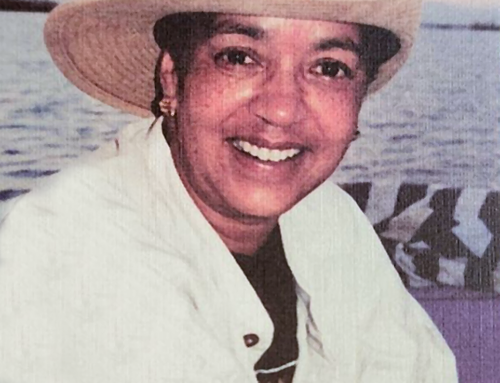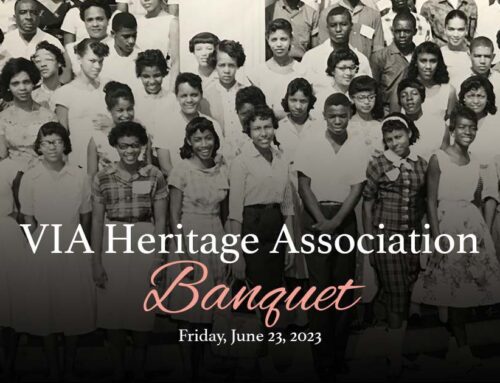“I want to see young people in America feel
the spirit of the 1960s and find a way to get in
the way. To find a way to get in trouble. Good
trouble, necessary trouble.”
Georgia congressman John R. Lewis never minced words when discussing issues steeped in moral implications. He considered Donald Trump’s fitness to serve as president of the United States as fair game.
“I don’t see this president-elect as a legitimate president,” Lewis told Chuck Todd on Meet the Press, a week before President Trump was inaugurated. “I think the Russians participated in helping this man get elected … When you see something that is not right, not just, not fair, you have a moral obligation to say something, do something. Our children and their children will ask us: ‘What did you do? What did you say?” Lewis boycotted Trump’s inauguration.
Responding on Twitter, Trump said Lewis was “All talk, talk, talk – no action or results. Sad!”
As the youngest member of the ‘Big Six’ leaders of the 1960s Civil Rights Movement, Lewis, 80, who died last week of prostate cancer, lacked the charisma and presence of the other five: A. Phillip Randolph, Dr. Martin Luther King, Jr., James Farmer, Jr., Whitney Young and Roy Wilkins but matched them in passion and surpassed them in courage.
The son of Alabama sharecroppers was raised on his family’s farm near Troy and attended segregated schools in Pike County. At age 15, he listened to radio news coverage of the 1955 Montgomery bus boycott and was inspired by Rev. King’s role in resolving the year-long crisis. He decided then to join the Civil Rights Movement. As a Fisk University student, he led sit-in demonstrations at segregated lunch counters in Nashville, TN and later joined the ‘Freedom Riders,’ who challenged the interstate bus terminals racially biased seating policy. He was beaten and arrested several times for defying the South’s Jim Crow laws.
Named chairman of SNCC in 1963, at 23, he was responsible for organizing student sit-ins, protests marches, etc. The appointment placed him on level with the nation’s top civil rights leaders, who organized the 1963 March on Washington for Jobs and Freedom. Rev. King delivered his memorable “I have a dream speech,” before 250,000 people and Lewis earned his first big moment in the limelight as a keynote speaker at the historic event.
Lewis was arrested 40 times and suffered numerous injuries, while adhering to Rev. King’s nonviolent philosophy – and his own, deep religious convictions. “He had an intuitive sense of right and wrong,” said Jon Meacham, Lewis’ biographer. “He believed fundamentally in the gospel of Jesus Christ. John Lewis is a saint.”
Lewis nearly lost his life on the Edmund Pettus Bridge on March 7, 1965 when he and Hosea Williams, a member of Rev. King’s inner circle, led 600 peaceful protesters during a voting rights march from Selma to Montgomery. They were brutally attacked by Alabama state troopers wielding billy clubs and tear gas. Lewis’ skull was fractured during the unprovoked attack. “It just reminds me that some of us gave a little blood on that bridge to redeem the soul of America, to make America better,” Lewis told USA Today.
Two months later, the Voting Rights Act of 1965 passed in the Senate 77-19 and President Lyndon Johnson signed the landmark decision into law on August 6, 1965. The Edmund Pettus Bridge incident galvanized public opinion, which caused Johnson’s speedy enactment of the law that included federal oversight of elections. Congress renewed the Voting Rights Act of 1965 with bipartisan support several times, but in 2013 the Supreme Court invalidated a section of that law which allowed the federal government to monitor states which had a history of discriminating against minority voters. Speaking in defense of the 5-4 decision, Chief Justice John Roberts said the court decided oversight no longer was needed because of changes made by the states since 1965. Riled by the court’s decision, Lewis called the decision a “dagger into my heart.” He told CBS, “They’re saying, in effect, that history cannot repeat itself. But I say, come and walk in my shoes.”
Last year, Congressman Lewis banged the gavel in appreciation of the House of Representatives approval by a 228-187 vote of a bill that would reinstate federal oversight of state election law and provide protections against racial discrimination enshrined in the 1965 Voting Rights Act, the landmark civil rights statute. Neither the Republican controlled Senate nor the president is expected to approve it.
“The best thing that Senate Republicans can do to honor the legacy, service, sacrifice and sincerity of Congressman Lewis is to pass that Voting Rights Act bill,” said Congressman Hakeem Jeffries. He also suggested that Congress also should name it the John R. Lewis Voting Rights Act.
Elected in 1986, Lewis, served as U.S. Representative of Georgia’s Fifth Congressional District for nearly 34 years. He was Senior Chief Deputy Whip for the Democratic Party, a member of the House Ways & Means Committee, a member of its Subcommittee on Income Security and Family Support, and Ranking Member of its Subcommittee on Oversight. Meacham said Lewis was “as important to the founding of a modern and multiethnic twentieth- and twenty-first-century America as Thomas Jefferson and James Madison and Samuel Adams were to the initial creation of the Republic itself in the eighteenth century.”
Lewis’ peers referred to him as the Conscience of Congress because he was committed firmly and completely to the concept of fairness, justice and freedom for all. His message of hope was delivered with passion. “Do not get lost in a sea of despair,” he told supporters two years ago. “Our struggle is not the struggle of a day, a week, a month, or a year, it is the struggle of a lifetime.”
He was awarded more than 50 honorary degrees from U.S. colleges and universities, including Harvard University and Morehouse College. John Lewis also received numerous other awards from eminent national and international institutions, including the Medal of Freedom, highest U.S. civilian honor, and the John F. Kennedy “Profile in Courage Award” for Lifetime Achievement, given to those “who, by acting in accord with their conscience, risked their careers or lives by pursuing a larger vision of the national, state or local interest in opposition to popular opinion or pressure from constituents or other local interests.”
Memorial services for Lewis began Saturday in Troy. On Sunday, his body, driven in a horse-drawn carriage, traveled across Selma’s Edmund Pettus Bridge for the last time. His soul, House Speaker Nancy Pelosi says, already is in a far better place. “He always worked on the side of the angels and now, he is with them,” she said.





Leave A Comment